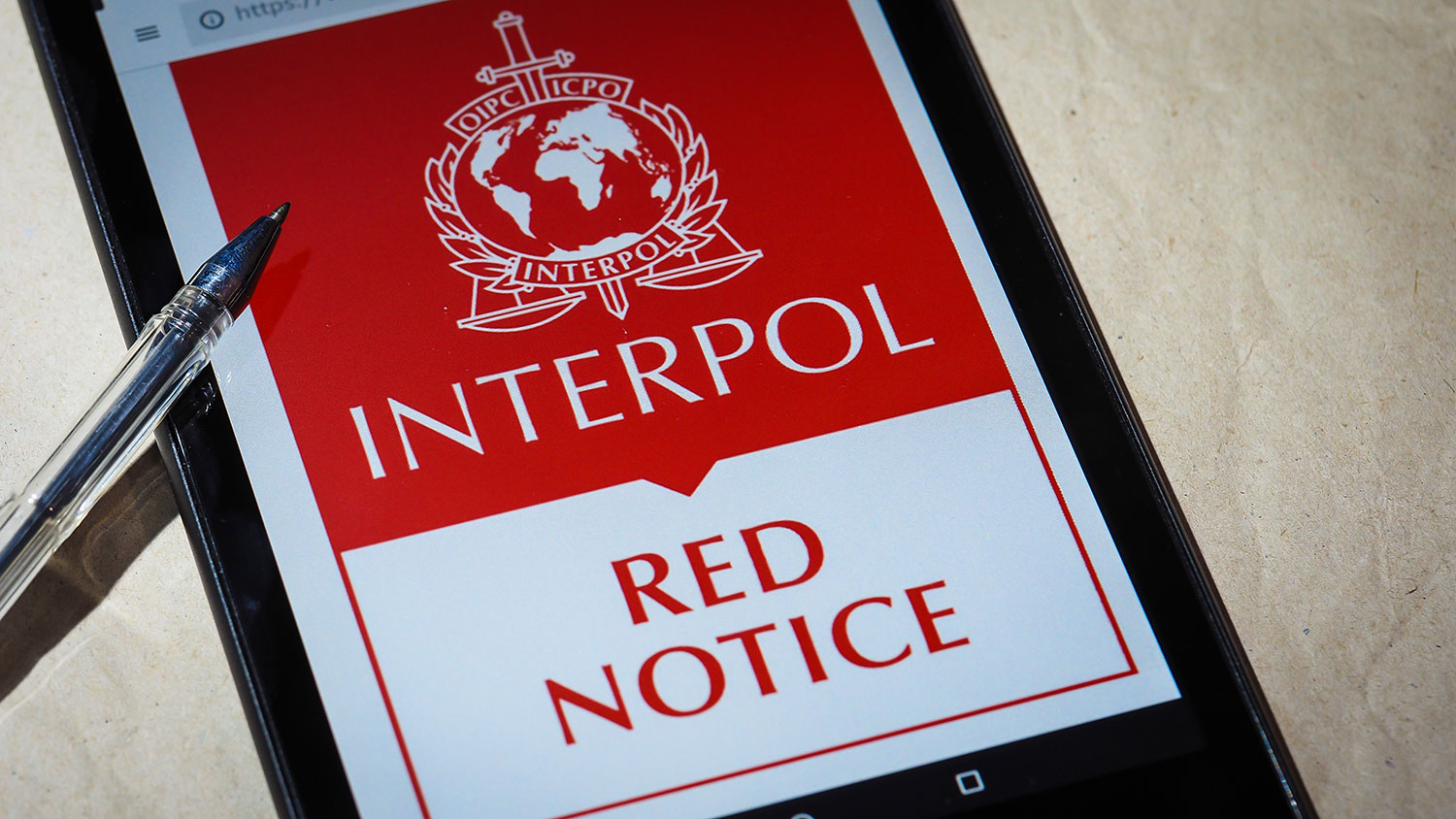How can you get a red notification removed?
1. Seek Legal Advice from an Interpol Red Notice Lawyer in London
If you have received a red notice from Interpol in London, it is crucial to immediately consult with an experienced Interpol Red Notice lawyer from London. Red notices carry serious implications for your freedom, travel, and employment opportunities.
A Red Notice (RN) is a request from a member country for the location and arrest of a wanted person for extradition to the country where criminal charges have been filed. It typically includes identifying information, legal details, specifics of the crime, as well as photographs of the person being sought.
Unfortunately, red notices are sometimes misused, including in politically motivated cases such as the return of refugees or the targeting of dissidents. While Interpol, under Article 3 of its Constitution, prohibits intervention in political, military, racial, or religious matters, abuses still occur.
Only a qualified Interpol lawyer in UK can properly assess whether your notice violates Interpol’s rules and can initiate the necessary procedures for its removal. Acting without legal support greatly reduces your chances of success.
2. Reach out to the Interpol Commission for the Control of Files (CCF) through Professional Representation
If your name is listed under a red notice, filing a request with the Commission for the Control of Files (CCF) is essential. The CCF, composed of two chambers staffed by legal experts, reviews whether Interpol’s data processing complies with its rules and principles.
The CCF is an independent body that ensures data processing within Interpol adheres to its rules. It consists of two chambers: the Advisory Chamber and the Requests Chamber, both staffed with lawyers.
Our Interpol lawyer in London can assist you in preparing a comprehensive application to the CCF, ensuring that all relevant legal arguments are presented. The CCF can then decide to delete, modify, or add disclaimers to your personal file. Having a skilled lawyer manage this process maximizes your chances of a favorable outcome, as the legal standards and procedural requirements are complex and often misunderstood by individuals acting alone.
If you are a foreign national who has received a red notice from Interpol while residing in the United Kingdom, it is critical to immediately notify both the police and your Interpol red notice lawyers in London.
A red notice can heavily impact your immigration process: you may be arrested at the border, detained for extended periods, denied asylum or bail, or have your immigration status jeopardized. In some cases, you could face new criminal proceedings triggered by the notice itself.
If you are recognized as a refugee, Interpol’s rules mandate the deletion of red notices or diffusions relating to your case. However, the submission of evidence under Article 3 of Interpol’s Constitution must be handled professionally. Having an Interpol lawyer in UK by your side ensures that the correct procedures are followed and that your rights are fully protected.
4. Contact a Human Rights Law Firm in London
Human rights organizations and specialized law firms in London play a critical role in protecting individuals targeted through politically motivated red notices. These institutions conduct research, advocacy, and provide direct legal assistance to victims of human rights abuses.
If you believe the red notice against you is politically or religiously motivated, or if you are at risk of persecution, immediate legal action is necessary. Collaborating with a human rights-focused legal team ensures that strong evidence is presented to Interpol and that the broader international community is informed of your case.
Providing letters from government officials, reports from international bodies, and personal impact statements can greatly strengthen your application for red notice removal. An Interpol red notice lawyer in London or an expert human rights lawyer ensures that your defense is structured, credible, and aligned with international standards — dramatically improving your chances of success.
What is extradition?
Extradition is the legal process of transferring a person convicted of a criminal offence from one jurisdiction to another for prosecution or execution of a sentence. The main function of extradition relations is to combat international organized crime and terrorism. Let’s look at how the extradition process works, the countries with which the UK has an extradition treaty and those with which it does not.
Extradition UK has a complex and well-developed system, governed by the Extradition Act 2003. The Extradition Act sets out the legal framework for extradition arrangements with both EU member states and other countries around the world. The extradition process in the UK involves several key stages:
- Receipt of an extradition request: a foreign country makes a formal extradition request for the surrender of a person accused or convicted of a crime;
- Arrest and trial: Once a request is received, UK law enforcement can detain the person requested. Following the provisional arrest, the case is referred to a magistrates’ court, where the grounds for extradition are considered;
- Assessing the grounds for extradition from the UK: the court assesses whether the request meets the requirements for dual criminality, meaning the extradition offence must be a crime in both countries. The extradition hearing also takes into account the individual’s human rights and the risk of their violation if extradited. If the request violates any of these regulations, the requested country can refuse extradition.
- Appeals: If extradition is granted, the person requested has the right to appeal to the High Court and, if necessary, the Supreme Court. However, the High Court can’t hear any appeals until the Secretary of State authorizes the requested person’s extradition proceedings.
- Final decision: Once all legal procedures have been completed and the decision to extradite has been confirmed, the Home Secretary signs the extradition order.
Extradition in the UK strictly adheres to its international human rights obligations, including the provisions of the European Convention for the Protection of Human Rights and Fundamental Freedoms. These proceedings also consider whether any statutory bars to extradition apply.
For example, under Article 3 of the Convention, extradition requests cannot be carried out if there is a real risk of torture or inhuman or degrading treatment. Lack of prosecution decision is also another reason that may prohibit extradition from the UK.
Which countries do not have an extradition treaty with the UK?
The absence of a bilateral treaty between the UK and the requesting state can complicate an extradition arrangement over a requested person. However, even in such cases, extradition processes can be carried out based on multilateral treaties or the principle of reciprocity. Some extradition countries in the UK are not on the list of states with which formal agreements have been concluded, which can complicate cooperation in this area, for example:
- Republic of China (excluding Hong Kong and Macau)
- North Korea
- Maldives
- Mongolia
- Namibia
- Nepal
The UK has an extensive network of extradition arrangements with many countries around the world. These treaties provide a legal basis for cooperation in criminal justice, setting out clear procedures and conditions for the transfer of accused persons. The existence of such agreements demonstrates mutual trust between countries and their willingness to work together to combat crime.
Countries that have concluded an extradition treaty with the UK usually agree on the following provisions in the treaties:
- Double criminality: the crime for which extradition is sought must be punishable in both countries;
- Minimum severity of the crime: a minimum sentence is often set, such as at least one year in prison;
- Exceptions: Political crimes, war crimes, and cases where the person may be persecuted for reasons of race, religion, or political opinion are usually excluded from extradition.
Extradition between the UK and Dubai
The United Arab Emirates (UAE), of which Dubai is a part, has a bilateral extradition treaty with the UK, signed in 2008 and entered into force in 2013. This treaty sets out the legal framework and procedures for extradition between the two countries, facilitating more effective cooperation in the fight against crime.
Features of the process:
- Formal procedures: the extradition request must comply with treaty and national law;
- Human rights risk assessment: UK courts take into account the possibility of a violation of the requested person’s rights in the event of extradition, in line with the European Convention on Human Rights;
- Double criminality: the offence must be punishable in both countries.
Extradition between the UK and Thailand
Extradition in the UK and Thailand is based on an extradition treaty signed in 1911 and ratified by both countries. This treaty sets out the procedures and conditions for the transfer of accused persons. The extradition process involves a formal request, the detention of the person including a trial.
Features of the process:
- Human Rights: UK courts carefully assess whether a person’s fundamental rights are being violated, including the risk of the death penalty or ill-treatment. Under Article 3 of the European Convention on Human Rights, extradition may be refused if there is such a risk;
- Fair Trial Guarantees: Thailand’s judicial system is reviewed to ensure that it provides a fair trial.
Extradition between the UK and Cyprus
The UK and Cyprus have long-standing historical ties and are parties to the European Convention on Extradition of 1957. This ensures uniformity of procedures and high standards of human rights protection.
Key stages:
- Direct cooperation: the judicial authorities of both countries can directly interact within the established legal framework;
- Respect for human rights: both states are bound by the European Convention on Human Rights, which provides additional protection for requested persons;
- Accelerated procedures: the existence of common legal standards allows for a reduction in the time required to process extradition requests.
Extradition in the UK and Cyprus is carried out under national laws and international obligations. The courts of both countries are obliged to ensure a fair trial and respect for human rights as provided for in international treaties.
The Role and Jurisdiction of Interpol in London
Interpol’s red notices are a crucial component of international law enforcement activities. Serving as a global alert system, these notices are integral to tracking and apprehending individuals crossing international borders. However, their impact extends beyond law enforcement agencies, affecting legal proceedings and individual rights within jurisdictions.
As an institution, Interpol doesn’t have investigative or prosecutorial powers, it merely assists police forces from different countries in collaborating on transnational cases. The execution of extradition requests and legal actions related to criminal cases fall under the jurisdiction of the respective national police or law enforcement agencies in London.
Not sure how to proceed with Interpol in London? Contact us for a consultation.




